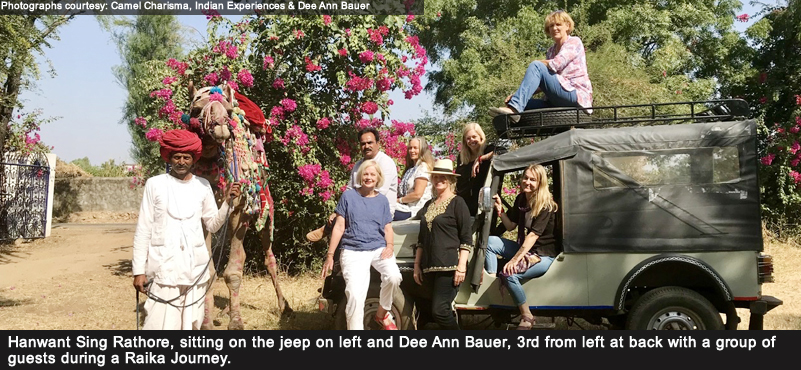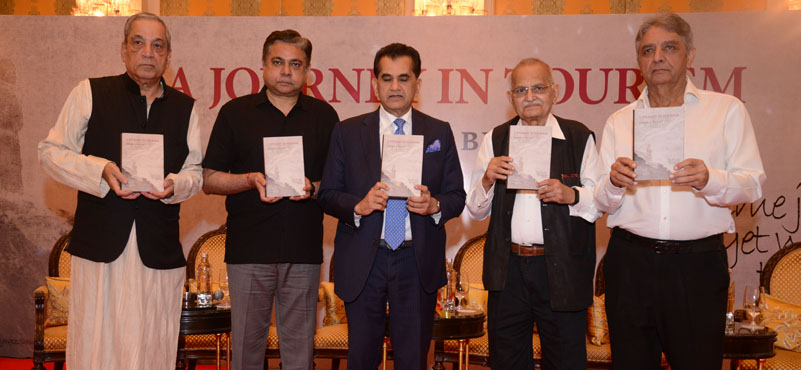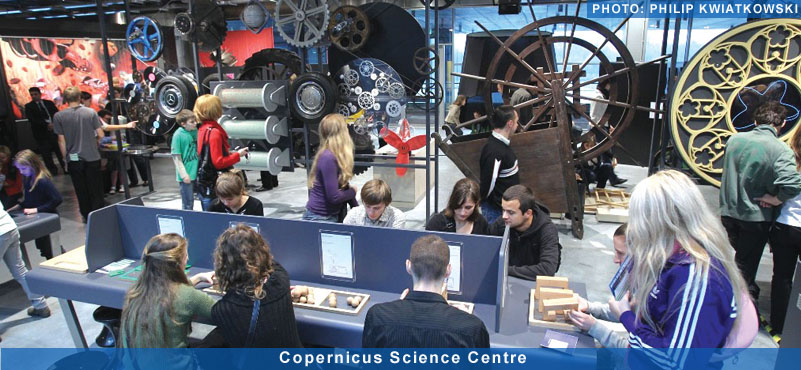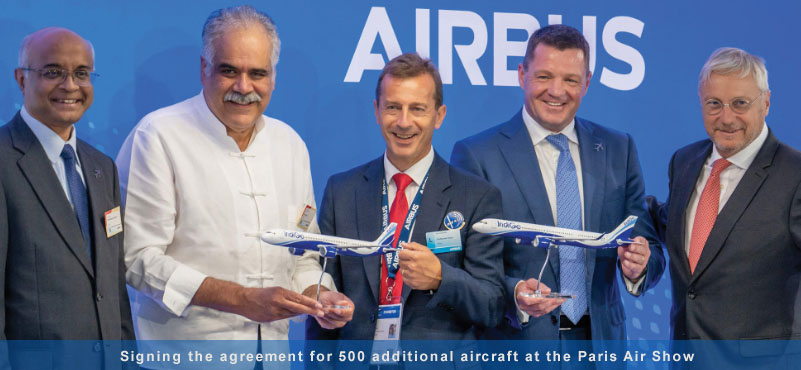“About 25 years ago, it all began with a kiss…. a big smooch on the cheek by a friendly female camel. Earlier, in 1979 while working as an archaeozoologist in Jordan, I saw a line of hundreds of orderly camels descending down a hill to their watering point. It was like a mirage – and so began my love affair with camels!” recalls Dr. Ilse Köhler-Rollefson of Lokhit Pashu-Palak Sansthan (LPPS), Sadri, Rajasthan and The League for Pastoral Peoples (LPP), Germany.
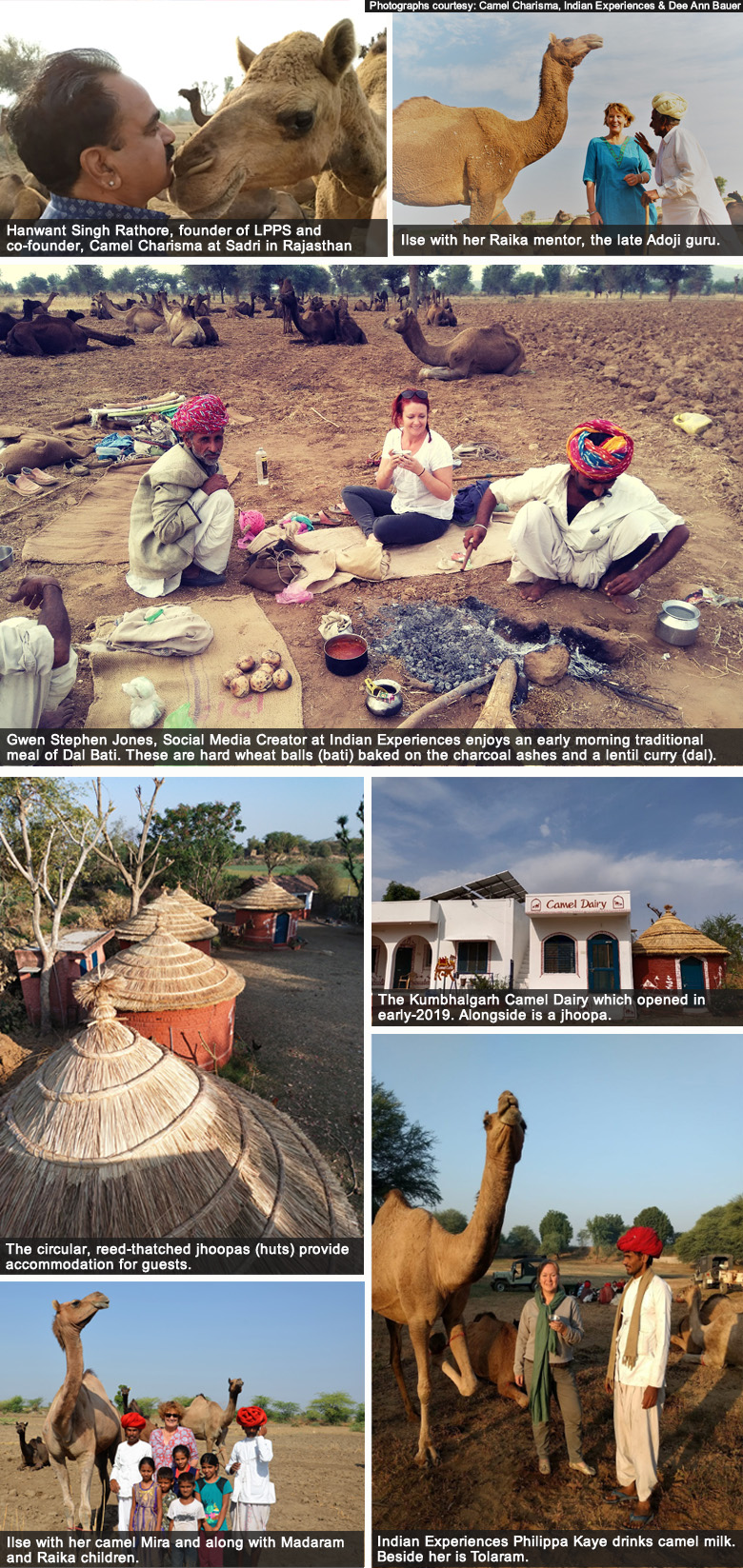 “I came to India in 1990 to research on Indian camel nomads at the National Research Centre on Camels (NRCC) in Bikaner. A meeting with the first Raika veterinary doctor, Dr. Dewaram Dewasi and his fascinating input about his community kindled my interest,” she remembers.
“I came to India in 1990 to research on Indian camel nomads at the National Research Centre on Camels (NRCC) in Bikaner. A meeting with the first Raika veterinary doctor, Dr. Dewaram Dewasi and his fascinating input about his community kindled my interest,” she remembers.
The Raikas of Rajasthan:
The Raikas from Sadri village in Pali district are the original guardians of the camels and once looked after the royal camel herds of the Maharajas. They believe they were created for that purpose by Lord Shiva after Parvati had moulded the first camel out of clay.
During this period, a fateful encounter led Ilse to her mentor Adoji Raika (he passed away in 2004). He challenged the German veterinary by saying ‘Don’t just take photos, do something for us! Our camels are dying from diseases’.
His request, perhaps, made Ilse decide her future, and she settled down in Sadri. Upon starting her successful camel medicine campaign, she was nicknamed ‘jari-buti’ by the Raikas.
“To the Raikas, their camels are akin to their children, where baby camels are not separated from their mothers. Each has a name and their owners are familiar with their individual personality. To better understand the situation on the ground, I bought a female camel at Pushkar and named her Mira.
In 2015, Ilse and her partner Hanwant Singh Rathore launched Camel Charisma Pvt. Ltd. Subsequently the Kumbhalgarh Camel Dairy was inaugurated in early-2019. Both are social enterprises to save the camel as part of Rajasthan’s biodiversity and heritage by increasing income opportunities from these animals and developing eco-friendly products.
“We started out by setting up the world’s first Camel Poop Paper Factory with the intention of generating extra income for the camel breeders from the sale of dung, and creating jobs for local women. Next, we established a wool carding unit to process camel wool. Lately, we have been focusing on camel dairy products and are proud to have established India’s first dedicated camel dairy on our campus at the edge of the Kumbhalgarh Wildlife Sanctuary. From there we ship frozen camel milk, mostly for autistic children, all over India.” informs Ilse, recipient of the Nari Shakti (Women’s Power) Award by Mr. Pranab Mukherjee, former President of India in 2017.
Challenges the Raikas face:
“India’s camel culture is highly endangered. We are raising awareness about the perils of a way of life that is totally in tune with nature, now getting lost. Also trying to preserve an animal welfare friendly, organic, nature-based way of food production. This is where our visitors and tourists help create an awareness,” says the author of over a hundred research publications and a book, ‘Camel Karma’. Twenty Years among India’s Camel Nomads’ (2014).
“The Raika face the problem that there are no value chains for their camels. Since they are not allowed to export camels out of Rajasthan, there is no market for their male camels. This has to change. stresses Ilse.
“Tourism focus was always on-going for a camel ride at the Sam sand dunes – which by my experience is totally awful. Nobody was aware about the camel breeding herds because the contact with the community was not there. We are offering this experience because we have worked with the Raika community for over three decades, so they trust us. Earlier, they were a totally closed community who did not want to deal with outsiders.
The Experience:
“Camel Charisma’s ‘chaifari’ starts early morning when guests drive out to where one of our herders has stayed overnight. They experience the camel herd waking up, are nuzzled by friendly she-camels and cuddle the baby camels. They observe and can try milking the camels. Meanwhile, another Raika who has kindled a campfire, starts brewing very strong camel milk tea over the camp fire. Sitting on a camel hair blanket in the open field, guests partake of the camel milk tea, and experiencing the ‘aak leaf ritual’ – drinking fresh camel milk from a leaf cup made from the aak tree leaves (Calotropis procera), or in a little metal bowl. Talking to the Raikas, one gets a feeling and understanding of the hard work involved in taking care of Rajasthan’s state animals. It gives an inkling into the wealth of traditional knowledge the Raika have and that is about to get lost,” describes Ilse.
Back at the campus, visitors tour the facilities and sample and purchase Camel Charisma’s camel dairy products, especially various flavours of cheeses, including the favourite – feta marinated in local oil and spiced with Mathaniya mirchi.
Offered on site, residential facilities include the ‘Camel Lodge’ located in a tree-studded garden, and the simpler reed-covered jhoopas (huts). Overnight camel safaris offer stopovers in Raika villages, and sleeping on the ground around a desert bonfire, under a star-lit sky
The Inspiration:
The idea for the Raika Journey came from US-based co-organiser, Dee Ann Bauer who after a visit to Camel Charisma, fell in love with camels (and now own four camels in Jaisalmer!). She was convinced about the uniqueness of the Raika culture for contemporary society. “Jointly with Ilse and Hanwant we designed and implemented the Raika Journey ecotourism experience. To me it’s the impact of combining mindful business efforts together with social initiatives, which finally will help preserve and evolve traditional culture through mindful sustainable projects. Each totally immersive program strictly limits participants to 8 or 10 people per group. It’s received enthusiastic response from an international audience. Depending on the pandemic situation, it is hoped to offer the Raika Journey again in November 2021,” she hopes.
The Sustainability Factor:
Philippa Kaye, Founder, Indian Experiences, UK, says, “As a consultant for the travel trade and specialising in experiential, sustainable and NGO Experiences in India, I aim to introduce the real India which many tour operators would not ordinarily get to see. My 23 years of specialisation of India as a destination, backed by 13 years of living and working in India, led to my discovering a destination where trips can truly be tailor-made, involving local culture and communities. Particularly throughout the pandemic, our niche operators have found ways to help the local communities that they have interacted with. Raika Journey is truly experiential and not just voyeuristic which so much rural travel can be.”
Ilse sums up, “Visitor arrivals and participation create income for both, keeping the Camel Conservation Centre running by buying camel products and living on our premises, as well as for the Raika families whose herds are being visited. They learn and understand about the unique relationship between Raika and camel and carry the message to the world.”
Future plans:
“Clinical studies have shown that camel milk from certain areas of Rajasthan, can help autism and diabetes patients. There are logistical problems to overcome, but we are trying to find ways for Rajasthan’s camel breeders to participate, so that some of their unique camel culture can survive. It is an experience that is certainly on par with seeing a tiger in the wild, and something no visitor will ever forget. We are certain that camel milk will become Rajasthan’s USP in the future and that the touristic experience will not be complete if one has not sampled camel milk. We plan opening our Camel Café shortly. Camel babies are born mostly in February, so that is the ideal season to visit,” Ilse says.
“One proposition I have, is for rangers to ride camels instead of using jeeps for exploring national parks and conservation areas which would be much more natural and in tune with the times. The need of the hour is to help the camel breeders to organise and create a market for camel products, ranging from dairy to wool and manure. We are confident that within 5 to 10 years, the enjoyment of camel products will be a major part of the touristic experience. Every heritage hotel will offer camel milk chai and our variety of cheeses,” the Camel Charisma co-founder concludes optimistically.
Contact:
Camel Charisma
Butibagh, Sadri 306702, District Pali, Rajasthan, India
Mobile+91-9829477535

